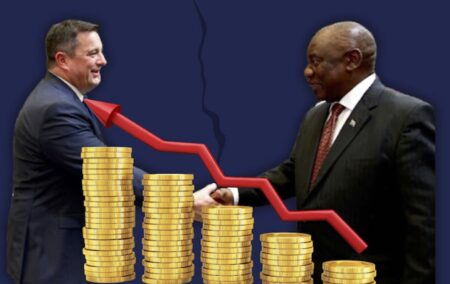Taking the date on which President Cyril Ramaphosa announced his latest cabinet – 30 June 2024 – 8 October marks 100 days of the Government of National Unity (GNU).
As expected, it has been a bumpy ride; but bumps in the road do not mean the car has fallen apart. From a liberal point of view the ideal, large-scale ideological and policy shifts have not taken place (yet). But by their nature seismic shifts are not easy to observe in the moment. Only after a few years, and in combination with analysis of elections and policy choices over a longer period, do such shifts become clearer.
The risks and impediments to the GNU’s potential, highlighted and repeatedly warned about by numerous analysts and commentators, have been confirmed by reality; for reform-minded, pro-growth individuals in political parties (and yes, such people are also to be found in the ANC), the day-to-day work and frustrations of government business can fuel a sense of disillusionment. These risks, especially for parties and individuals within the GNU that lean towards liberal ideas and solutions, should not be dismissed by an easy hand wave; they should be acknowledged, accounted for, and planned for.
But there exists now the potential for, and the country has already seen, the benefits of competition between ministers and parties, and different ways of thinking about problems. Spaces for fresh winds and discussions, that simply did not exist before, are now opening up. The GNU will not, and should not be expected to, fix the country’s economic and social woes overnight. Businesses, especially those that form part of entities such as NEDLAC, should not fall for a Ramaphoria 2.0 and outsource their risk-management, planning, and investment decisions to government.
As tends to be the case more often than not, a lot hinges on securing the easy wins (within a very limited time scale) and doing some of the most difficult reform work and inter-party relationship-building in the country’s history, the benefits of which will only be seen and felt very far down the line.
The latest GNU tension point arose last week. On 26 September, after 18 months on the job, the tenure of Tshwane mayor Cilliers Brink came to an end; 120 of the 214 Tshwane councillors voted in favour of a motion of no confidence in the mayor, with 87 voting against and 1 abstaining. (Of the 214 total seats, the ANC, EFF, and ActionSA hold 117). The motion had been proposed by the ANC. The election of a new mayor needs to be held within 14 days (from 26 September) and dependending on negotiations between the DA and ANC, Mr Brink could return as mayor.
The ousting of Mr Brink on 26 September comes hot on the heels of the signing into law of the Basic Education Laws Amendment Act (BELA) by President Cyril Ramaphosa. The two events are causing ripples in the relationship between the DA and the ANC, but also inside the DA, where questions are being asked about whether the DA is being assertive enough in its relationship with the ANC.
Mr Brink’s ousting is unlikely to cause the end of the GNU on its own; perhaps with time it will be understood and seen as one of the major tremors that eventually caused the GNU to fall apart. It could also increase tensions and fuel internal DA frustration with the party leadership’s response to ANC heavy-handedness.
Should the GNU hold and accelerate a programme of reform and action – despite the Tshwane ouster and the BELA signing – this will be evidence of the coalition’s strength, as it will demonstrate that it can weather storms without sinking. The challenge for the DA specifically is to find a way of cooperating constructively without letting itself be steamrolled.
For the ANC, Gauteng Premier Panyaza Lesufi has strengthened his grip on the province and his position in the party, possibly in opposition to the plans of others on the party’s National Executive Committee. He is more likely now to lead the party’s campaigning into the 2026 LGE, and could be one of the foremost individuals contesting for the national leadership at the party’s next elective conference in 2027.
However, that the GNU has not been replicated at municipal level in the Gauteng metros should not be over-interpreted. The fact that different constellations are possible at national, provincial and local level represents a maturing of South African politics. Just because the ANC and DA are at loggerheads in Tshwane does not mean that the forces within the ANC opposed to the GNU have triumphed, but rather that the ANC calculated that opposing the DA in the capital would be of greater benefit to it now than cooperating with it. Rather than a fulsome ANC endorsement of Mr Brink’s ousting, the Tshwane development reflects areas of tension within the ANC.
In 2025, with the country playing host to the G20, the GNU has an ideal opportunity to build on the positive market sentiment in place since after the elections; and to ensure that the sentiment doesn’t remain only that, but something of more substance. Should it hold in its current form until 2026, the next Local Government Elections will test how the coalition partners perform and take responsibility for their roles and successes (and failures). Parties on the opposition benches, with MK and the EFF foremost among them, are working towards the next ANC elective conference in 2027 to possibly influence where the leadership contests will fall. Their own internal challenges aside, they pose significant challenges to the GNU, and to democracy and the rule of law more broadly in South Africa.
If you like what you have just read, support the Daily Friend.
For more from the Centre for Risk Analysis, including exclusive comment and analysis, bespoke briefings, weekly Risk Alerts, and around-the-clock data research support, become a CRA client today: https://cra-sa.com/services.

